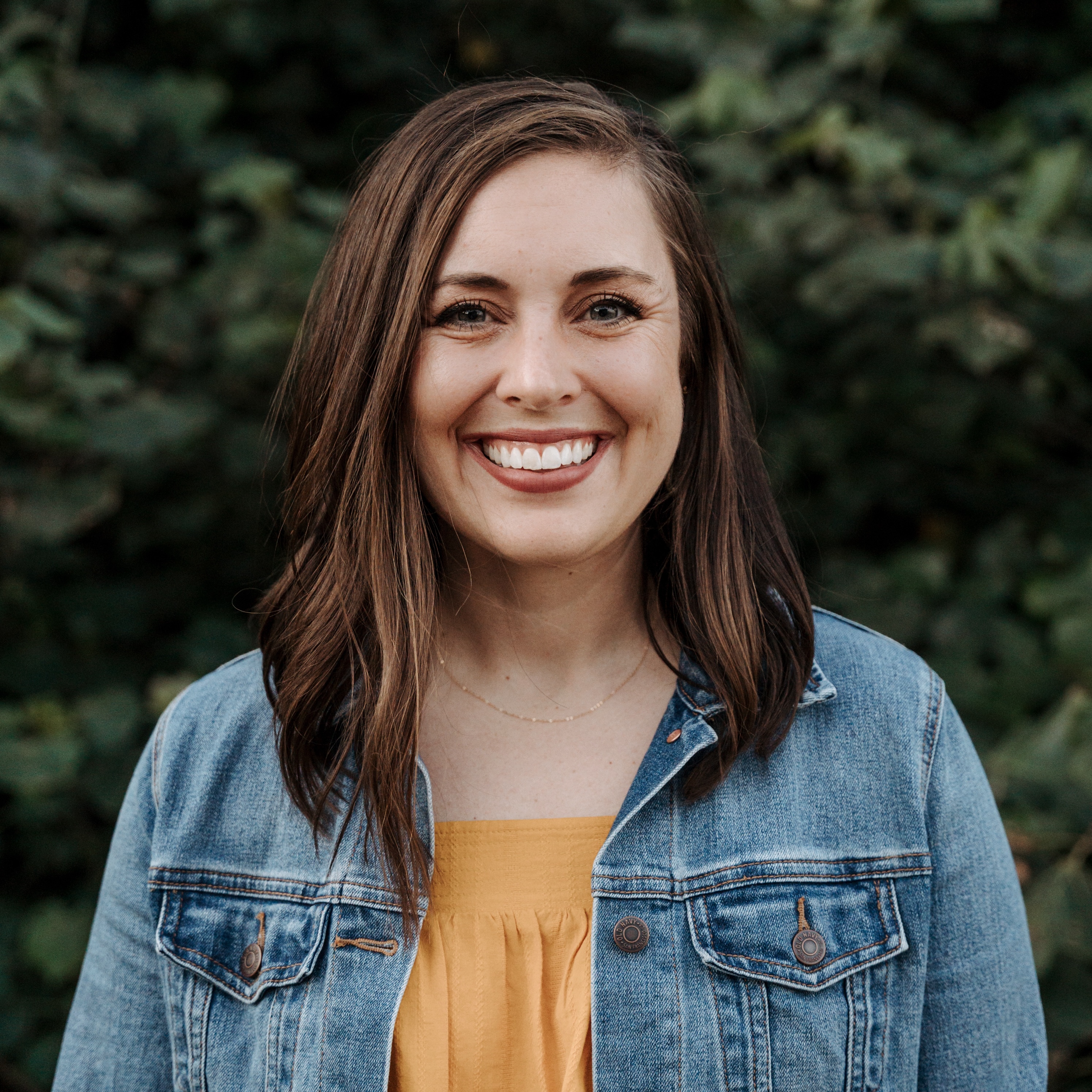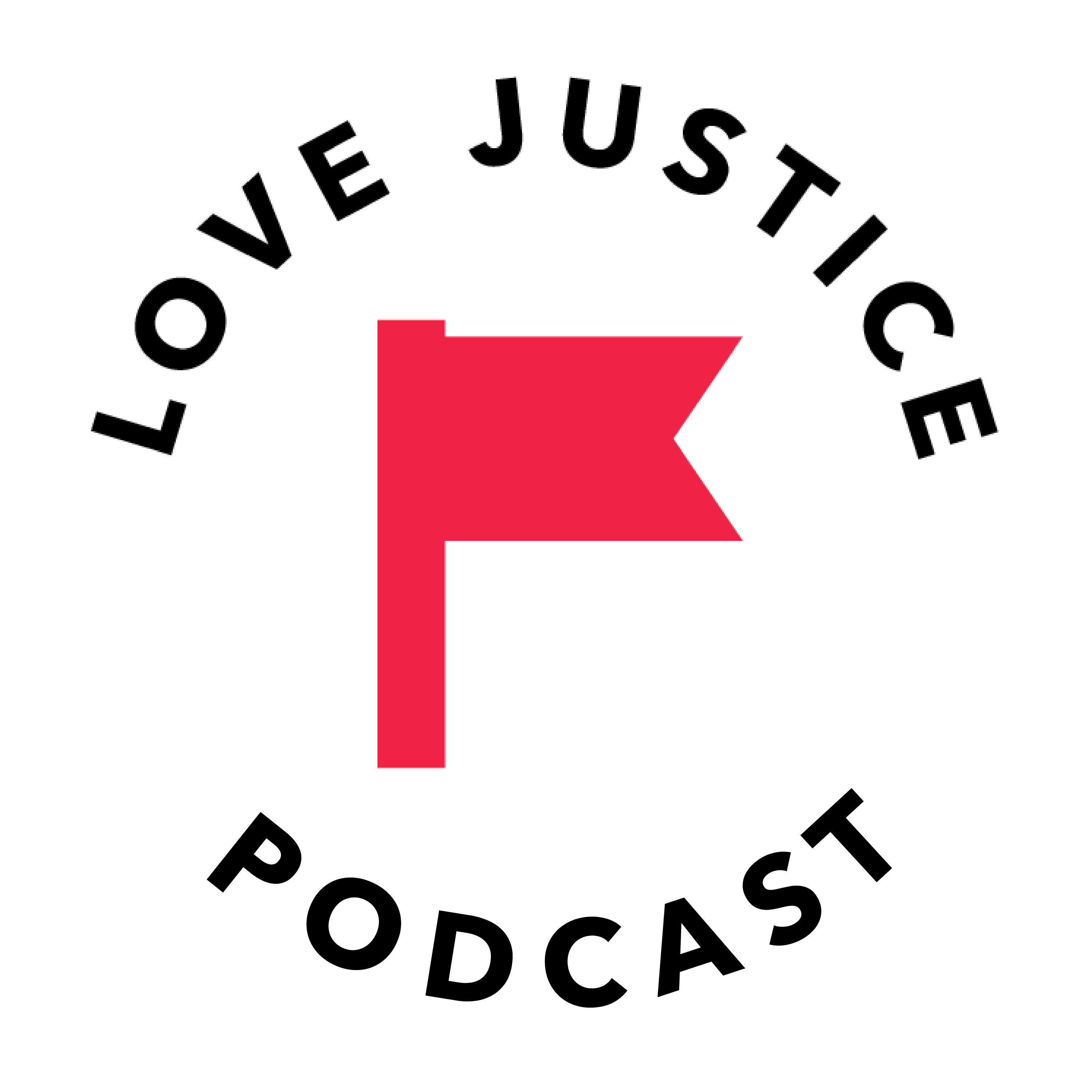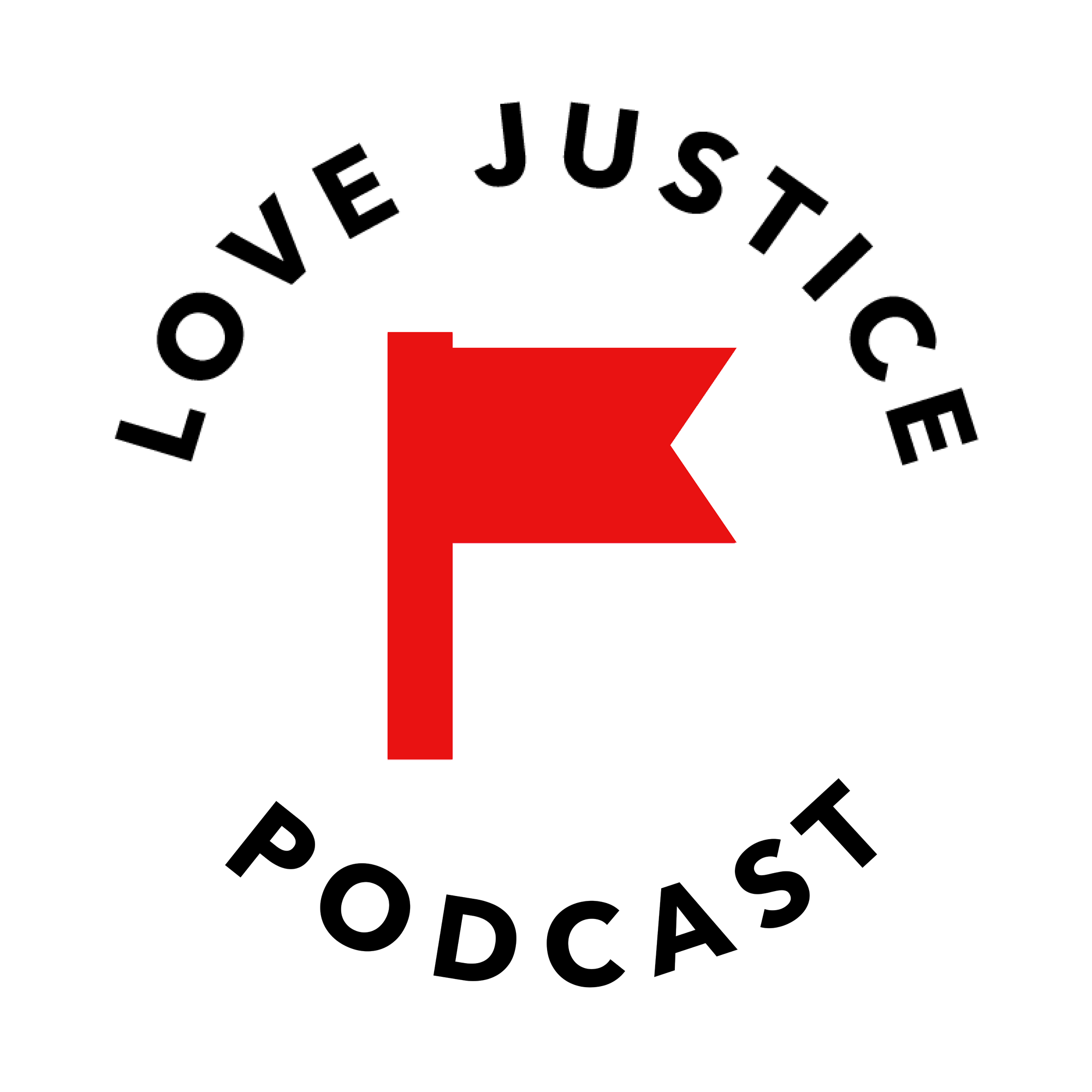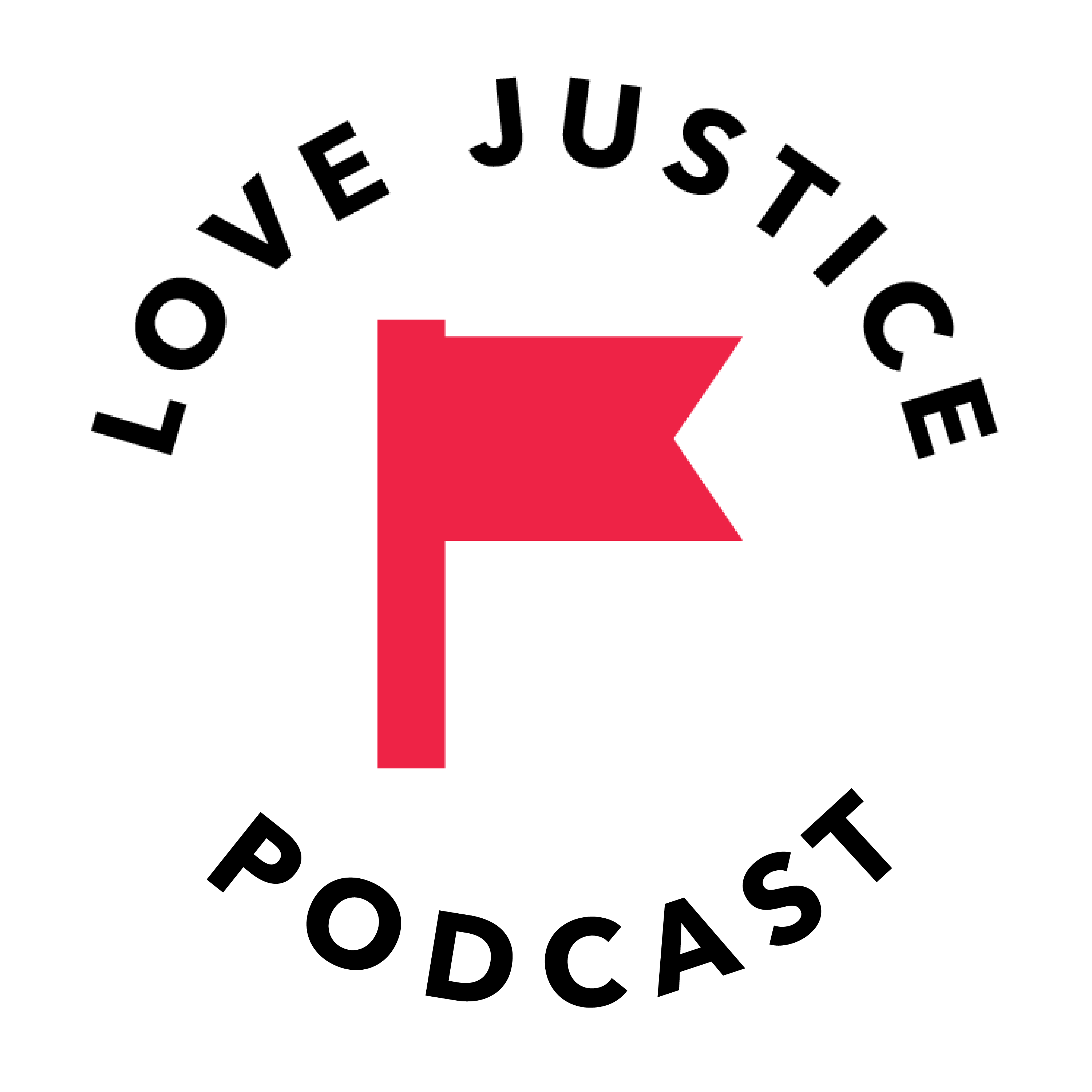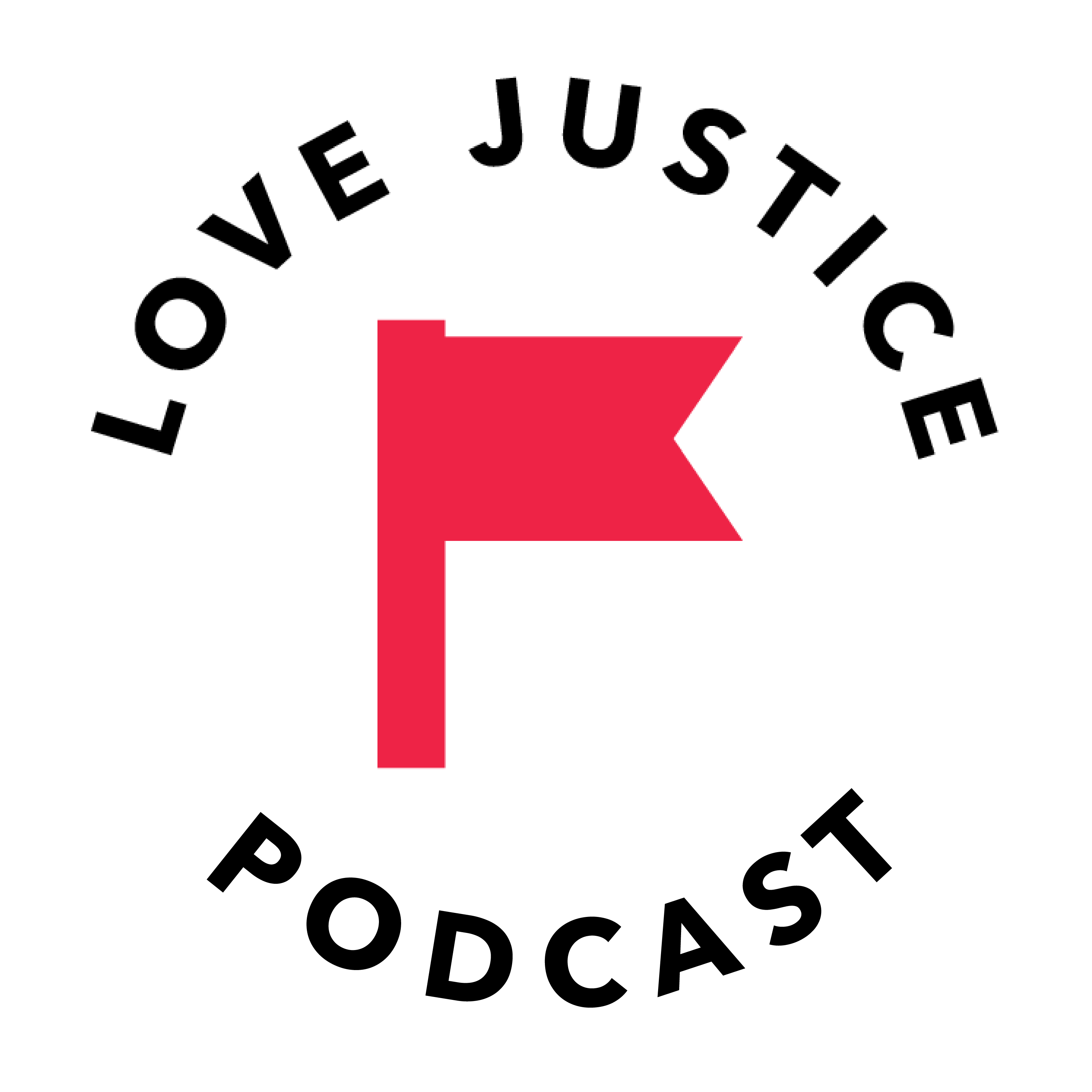Episode Transcript
[00:00:03] Speaker A: Welcome to the Love justice podcast, where.
[00:00:05] Speaker B: We hear from different voices who are joining us in the fight against modern day slavery. Today's episode is part of our stories edition.
[00:00:13] Speaker A: Here's your host, Paula Cornell.
[00:00:18] Speaker B: My name is Paula Cornell, and you're listening to a stories edition of the Love justice podcast. Today, I'm sharing a really powerful story of redemption and transformation from one of our monitors in Uganda, Peter.
Our monitors are the heroes of our anti trafficking work, working on the front lines to find potential trafficking situations and get the potential victims to safety before it is too late. What's really crazy about Peter's story, though, is that before he came to work with love justice as a monitor fighting human trafficking, he himself was a trafficker.
I didn't know this the first time I spoke with him. We were on a Zoom call with a bad connection. And after confirming that that was actually what he said, my jaw was pretty much to the ground. How does a person go from actually trafficking people to the complete opposite of helping to stop them from being trafficked? I'm convinced that this is nothing other than the redemptive work of God.
Human trafficking is something that is often labeled very black and white, with traffickers understood to be some pretty extreme villains without justifying the crime in the slightest. My hope is that Peter's story helps to show two things. First, how human trafficking is driven by poverty and desperation on both ends. Both potential victims who are willing to take big risks for the chance at a better life, and traffickers who might see trafficking as a valid means of income to care for their own families. And second, that God can redeem all things. He can take a person's mistakes and turn it around into a powerful force for good.
[00:01:52] Speaker A: It was in 2016 when I just finished school from the university, so I was jobless. I didn't have anything, like to start with, where to start from. So I started looking for opportunities, wherever I could see an opportunity so that I start earning something for myself instead of sitting just there, you know, that doing kind of thing. So along the way, when I started looking for these opportunities, I came along a friend. This friend of mine was an old friend from a former school. We studied together, so I found him online. I was like, wow, long time. It's long since I saw you. We started chatting here and there. By the time I got him online, I was already in need of a job. So I told him straight away, if you have something over there, please call me so that I start my life because I really want to earn instead of sitting here so even before that, I applied online, various jobs. But then I couldn't find an opportunity. Like, you know, it's not really easy to get a job.
And I was like, it's okay, there is some job here, but I can't promise you that I'll be paying you monthly what you can do. You get some transport with you, you come to Nairobi in Kenya.
So I was like, okay, let me try my best. So I tried my best. I got the transport and went there. However, he didn't tell me the type of job he was doing.
Then I was like, let me go and try my luck. Since a friend has called me to be part of his job.
[00:03:53] Speaker B: I want to pause here to comment on something interesting. Although Peter was taking on a job as a trafficker, his recruitment had many of the same red flags that indicate when a person is being trafficked. His recruiter was an old friend, a connection that typically makes people more willing to take risks. They reconnected online. His recruiter does not give him any details of the job. So he travels for this job completely trusting this person. If one of our monitors had found him as he traveled to Nairobi for the job, they would have looked at the red flags present and tried to convince him to go home. But our work in those countries did not begin until two years later.
[00:04:33] Speaker A: So I reached there. He will come immediately. I entered the room. Inside there, there were over eight girls. And these girls that come from parts of Uganda, kampala, jinja or somewhere, so they could come. Then they stopped in that rental house. Then he had his bosses in Muscat, Oman, so they could send him tickets and the visa for as long as the girls have crossed from Kampala to Nairobi.
So he started teaching me how to do work. Then he was like, when they come, you go to the bus station offices, you pick them when you are walking, don't walk closer to them because there are these officers watching.
So we could walk a distance like 2 meters from one another.
I tell them, go. Uh, you follow me from behind. So I was always in the front. Then they were coming from behind.
So he taught me all those tactics, how I picked the gas from the bus stations, how I bring them into the house, how it is made like to make tickets and making fake stamps, uh, at the border, you know, they could cross the border and stamps at the border, they're expensive. So he had made some fake stamps and he could tell me how to put them in the passport, those booklets of the passport. So he taught me all that. Then a time reached that he was wanted. The police officers of kenyan investigators of Kenya, they knew that he was existing and trying to take these girls. And his company was not registered. He was doing it illegally. So it was his own secret. Me, I didn't know about it, but he just told me, like, come on, we work. After showing me everything in that way. So I went. I started working. I remember because when I reached, my colleague didn't tell me how it happens. He only told me, I normally take these girls out of their will.
They get them the tickets and the visas, then they go for work over there. But something that gave me a shock, this guy couldn't allow these ladies or these young women to move outside that closed place, that rental. We were leaving, not even moving out to buy anything at the shop, not even maybe moving on the veranda outside on the balcony. So they were feeling so stressed up. They are depressed, like they want to move out and feel some warmth. You know, Nairobi is very cold during the winter, so they could stay inside. They are depressed. They feel freezed. And the guy was so bit on them, I was not feeling okay with that. But because I came to work and my boss, I couldn't resist that. I remember one day talking about it, then I was like, why can't these girls, you take them maybe out in the night or they start the top roof, they feel some warmth. And like this, he was like, no. And he was very bitter on them. And at most, another thing that came into my mind, to believe that they've been trafficked. The stamps that were being put in their passports, they were fake stamps.
They fake stamps. And they could use them to go through the airport. And he could call those people working at the airport. There's some two, three guys at the airport. Who cleared them to go in the body room, I think so, in the boarding room, so he could call them, then pay them.
I could pay them some good money per head, per lady by young lady who was going over there, so you could pay bribe. Then they allowed them, because those people don't. Who checked the stamp in the passport. So all those kind of issues made me to believe that these guys, they being perfect, there are some also who could reach there. Then they're like, you guy, you told me I'm going to work as a waiter.
Someone like you told me I was going to work in the supermarket, but now I'm working as a housemaid. I'm suffering. These people are mistreating me. Why did you lie to me? Why didn't you tell me the truth? That I'm coming to work as a maid so they could cry and cry and cry and, you know, it was not really okay to me. I felt so to sad, but then I had nothing to do.
[00:09:34] Speaker B: In case that was hard to understand. Peter was sharing the warning signs he saw that indicated the girls in his new job were actually victims of human trafficking. They were not allowed outside the rented house they were kept in. They put fake stamps in their passports and there were two or three guys in cahoots with them at the airport. That would clear the girls through security for a bribe. Peter didn't feel good about this, but he needs the job. I think this kind of situation can be very difficult to understand. For those of us who have never experienced extreme poverty before, it might be easy to say, if it were me, I would have done this and this, but I would invite you to consider how desperation can make a person feel like they have no other choice.
[00:10:17] Speaker A: So one time he left. He was like, I'm leaving these girls. He left me with around 18 girls.
So he left Kampala and he was like, I'm going to do something over there in Kampala, but just keep around. I'll be giving you direction and instructions on what to do. So this is how I'm starting to work.
We started like that.
Little did I know that this guy is using me. Like, whichever girl we could take at the airport, he was earning around 30,000 kenyan shillings. That's around 1 million ugandan shillings. And me, he was only giving me 45,000. So we started working like that. The guy who said he'd been kampala for a week, he turned two weeks. One month and months went on. So he left me with the job.
I started doing the job. Probably what he did was only to send me the ticket and the visa online. So the rest of the work was doing it myself.
Now, as time went on, these officers noticed that the guy had left and it was me taking charge of the business of the trafficking business.
So using neighbors around that place we had rented, they kept on investigating here and there.
Not until some day when I went to pick the guys at the bus station.
I didn't know that these officers were following me up like they put on, just like civilians, you can't know their officers.
So immediately I picked them from the bus station. They handcuffed me, so I was handcuffed. They took me to the nearby police station.
Then they charged me against human trafficking. So I kept on pleading them. I was like, me, I'm just this young man trying to survive. I don't know Nairobi, Kenya, very well, but this job was referred to by a colleague who I called that have been arrested. And he switched off all his phones. So I remained on my own. It's up to me to talk to these officers to see how they can help me out rather than taking me to jail. Like, I didn't want to go to the prison.
So I switched talk to them slowly.
We were talking here and there. So they were like, we are not going to be bribed. We are not going to listen to you.
You have done a very big crime of human trafficking, and we are going to take you to prison for over ten years. Then they're like, if you don't want to be arrested for sorry, to be imprisoned, you have to pass 10 million kenyan shillings. So when I started thinking about 10 million, like, I don't have money, I've nothing saved all that enough. So I told them, with me, I only have 20,000 kenyan shillings, which is around. By then it was around 600,000 ugandan shillings. So I started crying for them. I played. I played.
I spent there over 8 hours just pleading for them. I was crying. I lost hope. I was thinking about my family back home who don't know where I am, who don't know what I'm doing. So I cried. I played with them. Not until one officer was like, come, come and we talk. So they took me to another room. They started talking to me. Then he was like, I know. I've really felt your situation. I felt the way you are doing whatever it takes to survive. So, yes, so sorry about that. But then I me, I'm going to excuse you that amount you have, but you should keep away from Nairobi because you already know where you stay, so we don't want to see you again. Come to Nairobi. Then I was like, yeah, as long as you've left me, because I don't want to go to prison, I'll leave Nairobi, Kenya, and go back to Uganda. Then they're like, it's okay. So after, I think their commander left, they left me. So they had to release me. And I went back to the room where the girls were.
[00:15:03] Speaker B: To make sure you're following this. The police officers figured out that the main guy left and that Peter took his place. They arrested Peter. And although he tried to call the main guy for help, that guy had switched off his phone, leaving Peter on his own. So the officers told Peter, we are not going to be bribed. You are going to prison. But then they say that Peter can get out of going to prison if he pays them a large sum of money, that certainly sounds like a bribe to me.
[00:15:30] Speaker A: So I narrated to the girls what happened, but then I gave them hope because I told them they should not get worried and they will get tickets and go to wherever destination they will go.
Now, after around two days, I was called again that there are some two more girls coming.
Like, even if it happened like that, I felt like I don't have nowhere to go. And this was my hustle. Let me just continue.
So after two days, they sent me some two more girls and I went there to pick them at the station, at the bus station.
Now, this officer who arrested me two days back and I gave them the money. They used other officers to tell them who I am, where I stay and how I do my work. So they set me up the second time after two days.
So when I went to pick the gas immediately I entered the room that we had rented.
They locked it up, put the padlock, and he was stranded inside. So I began crying. I tried to make calls here and there.
So after making calls, I had saved the number for the other officer who had arrested me some two days back. And I told him, it's ABCD. I've been locked inside here because I got the girls with me. I don't know what happened yet. I had talked to you some two days back to excuse me then was like, I told you to evacuate, uh, Nairobi. I told you to leave Nairobi and go back to Uganda. What happened? I thought you had left. Then I was like, no, even if I go back home, I have nowhere to start from because I left home to come and look for something to earn a living for myself. So even if I go back to Uganda, I'll not do anything there. So after explaining to him, I was like, let me call those officers. He called them and they opened the door.
So I explained to them my part.
Then they realized that the company was working for is not registered and it was very, very illegal. So they took me at the station.
But then I cried again to that man. We played a. I prayed for the other officer.
So the little man had saved again around 30,000 kenyan shillings I gave to them and they left me.
[00:18:13] Speaker B: So Peter is released for the second time on a bribe. Our teams report this kind of thing happening often, where they will do the work to get a trafficker arrested and then find that the individual has been released shortly after. Its interesting to me to hear this because we would say that a conviction helps advance justice by preventing that person from trafficking again. And by making the business of trafficking overall riskier to engage in for other traffickers who do not want to meet the same fate, going to prison. But in this case, the mercy of God to allow the police to release Peter a second time ended up doing far more to advance justice than his imprisonment would have.
[00:18:51] Speaker A: So when they left me, I went back home. I asked myself very many questions, which I couldn't get the answer. So I called my friend, a certain place called Rongai, Nairobi. Then I went there for in a hideout. I went to hide myself because they're still hunting for me down. I stayed there for over a week. I was stressed, I was crying. I was praying to God to give me a proper job because I nearly ended in prison. Probably my family would not see me back in their life again. So I kept praying for weeks.
I kept on asking myself so many questions. I asked God if there is any way he can give me a job rather than a job that is so illegal into my life that may make me lose my life. And I left and came back to Uganda, started working in a fish market.
And I kept on applying for jobs. Not until I landed on love justice work. So I'm a living testimony. And I stated not to do trafficking again because I know the repercussions and I know what I went through. So here I am today, Paula.
[00:20:19] Speaker B: So finally, after his second arrest and second fortunate release, something seemed to click for Peter. And he realized that no matter how desperate he was, he could not risk going to prison again. He returned home to Uganda and took a low paying, hard labor job in a fish market. But God had other plans for him.
[00:20:41] Speaker A: So there is a friend of mine who has a church within this place. And at times I could go there. We pray together.
So he has a friend, and this friend was a policewoman.
So this policewoman, who is a friend to that friend of mine, also had a friend who worked with love justice.
So that friend of mine, he put somewhere on his WhatsApp, some kind of advert that anyone with a diploma or bachelor's degree or something, or equivalent to that, there's an opportunity. So when I saw it arrest in his inbox, I was like, I have some papers with me. Can you avail me that opportunity?
I remember that day, I was putting on some open shoes. They're very dirty, some dirty, dirty clothes, like, you know, working a fish market the way that you look like.
So I rushed the way wise. I went to him. The wife was in charge. He even wondered why I was looking like that. And he told me, try, go and clean up, get your papers, write an application, then come back here. I will direct you. I went and did the same. Actually, when I reached home, I first prayed, because I believe in God. And every moment I find in my life, I normally pray. So I prayed fast. I wrote the application, got my papers, then I came back to this guy. He prayed for me still before he directed me to, to the other police woman. He directed me to the police woman. I went there, I met her. Now the police woman directed me to that love justice staff.
So they had come to, to do some research to see how the border works. So I went there, I met them, I took my application, they gave me a date to wait. So I wait. After waiting, they called me. I think after one or two weeks they called me that I've been shortly set for the interview. I went there when they gave me the interview date, then I rushed there.
Then after around two weeks, when they've communicated to me, so come and ready for interviews. I dressed up very well. I prayed. Then that Tuesday, I went there, I attended to the interview. They were on the panel. I think there were over eight of them. Like, you know, interviews the way they are, sometimes you panic because you have seen new faces and what. But then I had courage with me. I was so strong. I had the confidence in me. Whatever they could ask, I could answer. I didn't hide them out. I also told them about the trafficking stuff I was doing and I wanted to change my life.
So after, I think around some or two weeks, they called me, congratulating me to have gone through the interviews.
They welcomed me to the largest family.
Then around the, we started working.
[00:24:14] Speaker B: So the former trafficker, after escaping prison twice, became a monitor with love justice to help fight human trafficking. I asked him how his past impacts his work today.
[00:24:25] Speaker A: Well, mastery impacts the work I do with life justice. In this way, the fact that I've seen it with my eyes, the fact that I've been into it, and the near fact that I've seen the victims of human trafficking, the challenges they go through, the hardships they face, the worst situation that they went through, all they normally go through when they go to work outside their suffering, they are not given their salary, they are not given the food, they are not given freedom of expression whenever they want to move out.
I felt, and I really feel it deep inside my heart, that even when I was doing the work of trafficking people, whatever I was doing was wrong and was against the law. So if I had not done it, I wouldn't have been arrested twice.
So I feel like going through all that and the fact that even if I was doing that, I was praying. Since I'm a prayerful man, I think God showed me the right way to go. That probably whatever I'm doing, I can do it in a positive way rather than the negative way I was doing it. Like, you can still use the tactics you were using to traffic, to know who the traffickers are and stop them. You understand? So having gone all through that, it gives me courage, it gives me hope, it gives me all the wisdom that God has rendered me to see who a trafficker is, because I now know who a trafficker is. I know how they treated these victims. I now know the situation victims go through. I now understand what they face.
So this has given me the hint and has given me the effort and strength to do my work in a proper way. Because I can tell who traffica is, I can tell who a victim is, regardless of the tricks that they use to let them go and work abroad.
So it has really made my work impactful. So having gone through that, I can see a way through, I can see how I can do my best together with my team here to intercept more victims, to rescue more souls from being trafficked abroad, so that we end the suffering.
Yeah, I'm a believer and I'm a christian. I'm going to be christiane, and I trust and believe in God. If I didn't only keep my faith strong, if I didn't always pray, if I didn't always give my mind to God, probably even when I was arrested, they couldn't have listened to me, they couldn't have given me time to talk about myself, rather taking me rot in jail. So I do believe that whenever we pray to with the strength, with the courage, with the hope, with the faith, God can really show you a right path. God can always give you a bigger dream that you wished to envision. Time to come.
So along the way, working the fish market, working in a skins and hide company, working these, some casual, casual jobs, I didn't know that God was preparing me to come and stand with a certain organization that will help in rescuing victims of human trafficking. I didn't have anything in my mind that probably someday I will be working with. Love, justice.
It's a pleasure to me.
Since day one, I normally say to myself, and deep inside my faith, I normally say it's God who gave me this job. Because like I've told you how I got this job, it was a connection of over four to five people before it came into me. I do believe that those people who were destiny connectors towards this job, that they also have families, they also have people who really need this job. But I feel like I was chosen among the many to come and do this work of rescuing victims of human trafficking. So in all this, I see God is going to strengthen it. God is going to make me a person who is an example of impacting lives.
With the help of my team here, with the help of the national office, with the help of love Justice International, the trust that they put in me to make sure that I intercept people in the community is all prepared by God. We continue resting this all because it's a reality, I've seen it. It's a reality. I've gone through it. It's a reality. I've done it.
So let's keep fighting. Let's keep doing whatever it takes. Having faith in God by praying, because I normally pray before I go to work and I pray after coming from work, it all gives me strength. It all gives me the energy to do what is right.
[00:30:23] Speaker B: Peter started working with Love justice in October of 2022, using his insider knowledge as a reformed trafficker to help identify potential victims and suspected traffickers. Since working with us as a monitor, Peter has been responsible for more than 300 interceptions to protect people from being trafficked. Praise be to God who redeems and restores all things. I hope this story inspires you that no person or situation is too far gone to be redeemed for God's kingdom. Work with God. All things are possible. Indeed, we even believe and data supports this belief that it is possible to bring about a tipping point that causes the structures of human trafficking to collapse altogether. And we strive unfalteringly towards this goal.
To learn more about our work, the data behind this tipping point belief, or to partner with us by donating head to our website at lovejustice dot NGO.
Thanks for listening.
